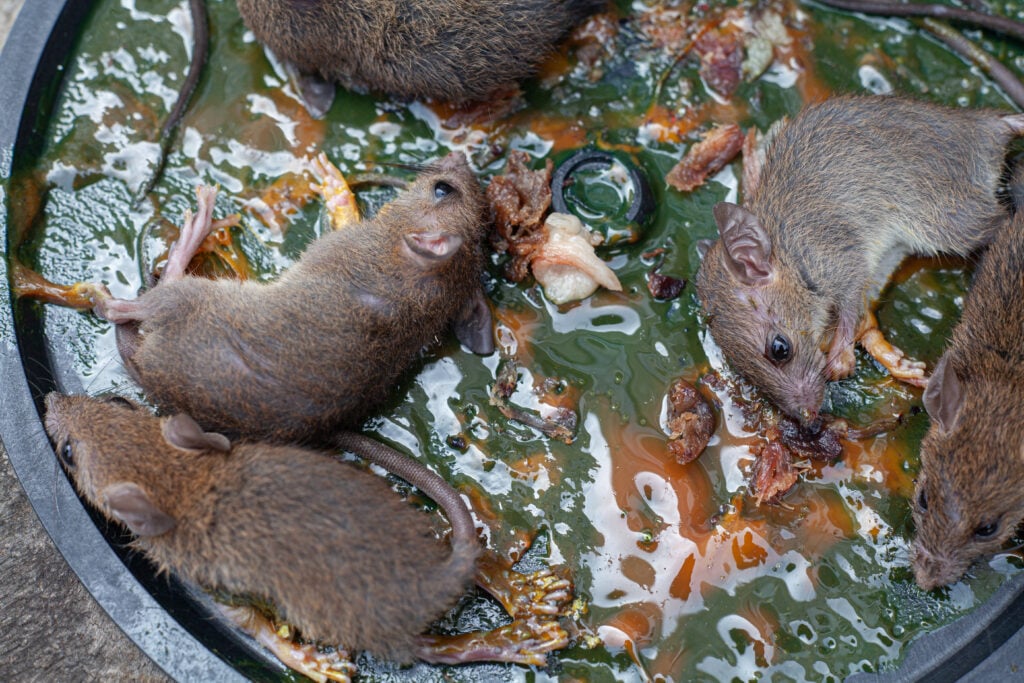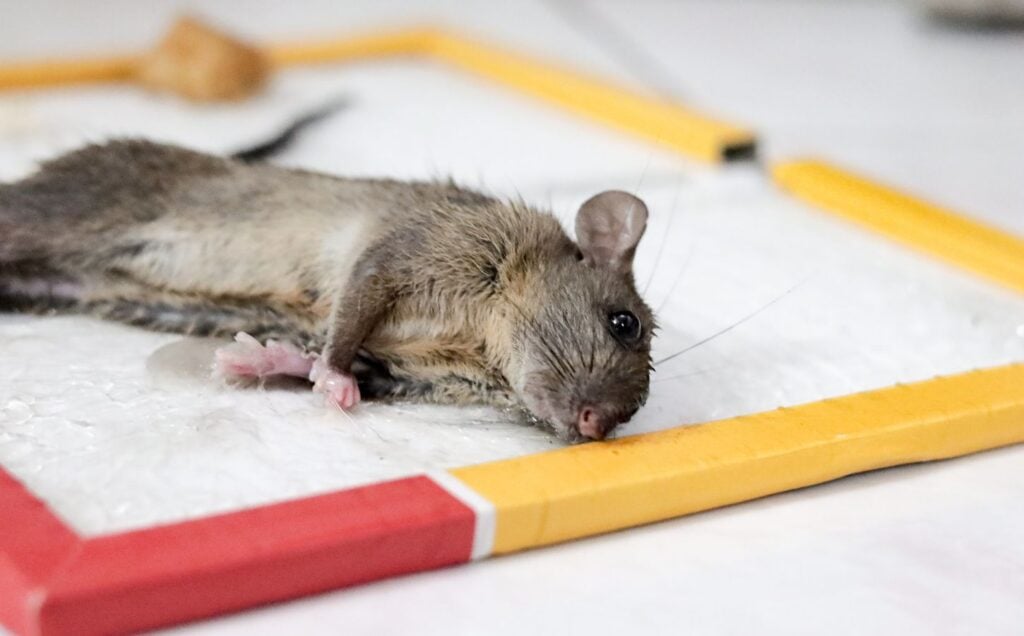Warning: this article contains distressing images
West Hollywood has become the first city in the US to ban glue traps, prompting celebration from animal rights campaigners.
Glue traps are trays lined with sticky adhesive that are used to dispose of animals, mostly rodents, insects, and snakes. Animals caught in them often panic and struggle, which causes them to become even more stuck. The glue often pulls off their fur or feathers, causing a prolonged and painful death.
According to animal rights organization PETA, it can take days for animals caught in glue traps to die. They may pass away of blood loss, suffocation, hunger, thirst, or be crushed by garbage when disposed of while stuck to the traps.
Following conversations with PETA, West Hollywood City Council voted unanimously to to ban the traps. “By keeping cruel glue traps out, WeHo is a trailblazer for vulnerable little animals,” said PETA Executive Vice President Tracy Reiman in a statement.
“PETA thanks city officials for protecting animals from horrific cruelty and urges lawmakers across the country to follow their lead.”
The problem with glue traps
As well as causing an agonizing death, glue traps also catch a large number of animals who weren’t intended to be trapped. These include birds, squirrels, lizards, and animal companions.

What’s more, the US Centers for Disease Control and Prevention (CDC) has warned the public not to use the traps as they increase human exposure to disease. This is because animals trapped will produce urine and feces, meaning pathogens are transmitted.
How to humanely remove rodents from your home
There are a number more humane alternatives to glue traps. These include eliminating food sources by keeping counters, cabinets, and floors clean, meaning they may leave your home of their own accord.
PETA also recommends leaving ammonia-soaked cotton balls near where their droppings or nests have been seen. These may drive rodents out of your home, as they hate the smell. You should always give animals a few days to leave before considering other options.
If there is still a problem, you can buy humane cage traps, which trap the rodent safely, meaning they can be taken outside unharmed. PETA says that they must be checked at least hourly, so the animal doesn’t become too stressed or dehydrated. You can buy one for $15.99 from PETA.






